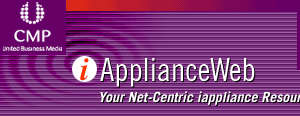



 |
 |
|
|
 |

|
||
|
|
|
|
|||

|
Microsoft Launches .NET Tools -- FinallyBy Bernard Cole Redmond, Wa. -- After almost 12 months talking about its new vision of Web Services, Microsoft Corp. has finally released for delivery the first of many tools to allow developers to create applications built around its .NET framework. After working the kinks out of several earlier buggy betas, Microsoft this month launched its Visual Studio .NET, which will -- similar to tools for other competitive Web Service frameworks that are already available -- eventually incorporate support for more than 20 programming languages, but with the notable exception of Java. The release comes about a year or more after the introduction of other major frameworks and tool suites based on Java and XML from IBM, Sun Microsystems and at least two or three other software tool vendors. Where applications written for virtually every other framework are to some degree interoperable because of their support in the underlying structure for both Java and XML, applications written for the Java-less .NET are not easily portable to other frameworks. In conjunction with Visual Studio .NET, the company has released new Web services toolkits for BizTalk Server 2002 and SQL Server. The first toolkit will provide additional support for orchestrating XML Web services through its integration with Visual Studio .NET, while the second package, will allow the use of Visual Studio to extend the capabilities of applications built on SQL Server 2000. Coinciding with the release, Borland Software Corp. is supporting .NET with its Delphi and C++Builder tool suites and Macromedia Inc. is targeting its Dreamweaver UltraDev to Microsoft's ASP.NET. Hoping to generate additional momentum behind its .NET framework, Microsoft has formed the .NET Component Builder Program, providing component vendors with resources to effectively build and market components using .NET. The program will be jointly run by Microsoft and the Component Vendor Consortium (CVC), a nonprofit organization representing third-party ISVs. Initially, Microsoft will offer its Visual Studio .NET in three editions: Enterprise Architect for development of large scale applications for infrastructure, with retail pricing set at $2,499; Professional, which enables developers to rapidly build XML Web services and next-generation applications for any Internet device. It is priced at is $1,079; and various language specific editions, the first three of which are Visual Basic .NET, Visual C++ .NET and Visual C#.NET available for a suggested retail price of $109. While the company is not offering any mechanisms to allow interoperability with other frameworks, for developers who want the kind of functionality they had with Java and the Java virtual machine mechanism, Microsoft has some alternatives. For Java developers who need to work in the .NET environment, Microsoft will offer JUMP to .NET, a Java user migration tool kit. It will also offer what it calls J-sharp, which allows developers to write -- not Java code for execution under .NET --- but .NET applications and services using Java-like language syntax. |
|
||||||||

Terms and Conditions Privacy Statement |
||||||||||